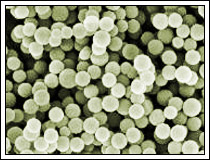Complex Organic Chemical Industry
Chemical pollutants include a variety of contaminants, ranging from simple inorganic ions to complex organic molecules. Each of these pollutants, be it organic orinorganic, has its own particular way of entering the environment and its own specific health hazards. It has to be noted that the organic compounds that are dangerous to the environment are all man-made and have only existed during the last century.
Apart from the organic chemical manufacturing plants, a lot of other industries also work with complex organic compounds on a regular basis. These include pesticides, pharmaceuticals, paints and dyes, petro-chemicals, detergents, plastics, paper manufacturing, etc. These industries deteriorate the quality of water by contaminating it with feed-stock materials, bye-products, product material in soluble or particulate form, washing and cleaning agents, solvents and added value products. This can prove to be a major threat as the decomposition process consumes much more oxygen than it can be replenished which may even result in oxygen depletion and have severe consequences for the stream biota.

Different Types of Organic Pollutants
There are many different types of organic pollutants, such as:
Hydrocarbons
These hydrogen-carbon bonds can be divided into two major types- the first, single-bonded alkanes, double bonded alkenes and triple bonded alkynes (gases or liquids) and the second being aromatic hydrocarbons, which contain ring structures (liquids or solids) and are more reactive than the first class kinds of hydrocarbons.
PCBs
PCBs are common hydraulic fluids, coolant/ insulation fluids in transformers and plasticizers in paints. These are immiscible in water and are quite toxic.
Insecticides
Insecticides such as DDT's are very dangerous because they accumulate in fat tissues of lower animals and then enter the food chain.
Detergents
Both polar and non-polar.
Apart from these, organic pollutants also appear to contain proteins, carbohydrates, fats and nucleic acids in a multiplicity of combinations.
Treatment
Biodegradable organic contaminants generally do not require pH control of their effluent and are generally treated using aerobic methods like Aerated Lagoons. This water treatment method efficiently treats nontoxic wastewater generated by industries like the pulp and paper mills. It has to be noted that biological processes can remove only degradable organics. The non-degradable organics present in the influent water or generated as oxidation by products are extremely toxic and hazardous to aquatic life. The most common technology used to solve this problem is adsorption on activated carbon.
Sometimes, anaerobic processes are employed before aerobic processes for the treatment of high-strength, readily degradable wastewater as they produce low sludge and methane.
|